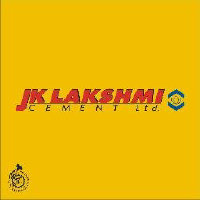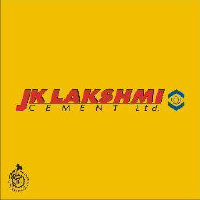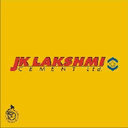
JK Lakshmi Cement Ltd
NSE:JKLAKSHMI


| US |

|
Johnson & Johnson
NYSE:JNJ
|
Pharmaceuticals
|
| US |

|
Berkshire Hathaway Inc
NYSE:BRK.A
|
Financial Services
|
| US |

|
Bank of America Corp
NYSE:BAC
|
Banking
|
| US |

|
Mastercard Inc
NYSE:MA
|
Technology
|
| US |

|
UnitedHealth Group Inc
NYSE:UNH
|
Health Care
|
| US |

|
Exxon Mobil Corp
NYSE:XOM
|
Energy
|
| US |

|
Pfizer Inc
NYSE:PFE
|
Pharmaceuticals
|
| US |

|
Palantir Technologies Inc
NYSE:PLTR
|
Technology
|
| US |

|
Nike Inc
NYSE:NKE
|
Textiles, Apparel & Luxury Goods
|
| US |

|
Visa Inc
NYSE:V
|
Technology
|
| CN |

|
Alibaba Group Holding Ltd
NYSE:BABA
|
Retail
|
| US |

|
3M Co
NYSE:MMM
|
Industrial Conglomerates
|
| US |

|
JPMorgan Chase & Co
NYSE:JPM
|
Banking
|
| US |

|
Coca-Cola Co
NYSE:KO
|
Beverages
|
| US |

|
Walmart Inc
NYSE:WMT
|
Retail
|
| US |

|
Verizon Communications Inc
NYSE:VZ
|
Telecommunication
|
Utilize notes to systematically review your investment decisions. By reflecting on past outcomes, you can discern effective strategies and identify those that underperformed. This continuous feedback loop enables you to adapt and refine your approach, optimizing for future success.
Each note serves as a learning point, offering insights into your decision-making processes. Over time, you'll accumulate a personalized database of knowledge, enhancing your ability to make informed decisions quickly and effectively.
With a comprehensive record of your investment history at your fingertips, you can compare current opportunities against past experiences. This not only bolsters your confidence but also ensures that each decision is grounded in a well-documented rationale.
Do you really want to delete this note?
This action cannot be undone.

| 52 Week Range |
697.3
963.75
|
| Price Target |
|
We'll email you a reminder when the closing price reaches INR.
Choose the stock you wish to monitor with a price alert.

|
Johnson & Johnson
NYSE:JNJ
|
US |

|
Berkshire Hathaway Inc
NYSE:BRK.A
|
US |

|
Bank of America Corp
NYSE:BAC
|
US |

|
Mastercard Inc
NYSE:MA
|
US |

|
UnitedHealth Group Inc
NYSE:UNH
|
US |

|
Exxon Mobil Corp
NYSE:XOM
|
US |

|
Pfizer Inc
NYSE:PFE
|
US |

|
Palantir Technologies Inc
NYSE:PLTR
|
US |

|
Nike Inc
NYSE:NKE
|
US |

|
Visa Inc
NYSE:V
|
US |

|
Alibaba Group Holding Ltd
NYSE:BABA
|
CN |

|
3M Co
NYSE:MMM
|
US |

|
JPMorgan Chase & Co
NYSE:JPM
|
US |

|
Coca-Cola Co
NYSE:KO
|
US |

|
Walmart Inc
NYSE:WMT
|
US |

|
Verizon Communications Inc
NYSE:VZ
|
US |
This alert will be permanently deleted.
 JK Lakshmi Cement Ltd
JK Lakshmi Cement Ltd
JK Lakshmi Cement Ltd
Investor Relations
JK Lakshmi Cement Ltd., nestled within the venerable landscape of India's industrial sector, operates as a key player in the cement industry, crafting its narrative since its inception as a part of the JK Organization. Founded in 1982, the company has steadily amplified its presence across northern, western, and eastern India, earning a reputation for quality and innovation. The company produces a spectrum of cement varieties, including Ordinary Portland Cement (OPC), Portland Pozzolana Cement (PPC), and other blended forms. This product diversification not only caters to various construction needs but also aligns with its strategic thrust on sustainable practices. With manufacturing plants strategically located in Rajasthan, Gujarat, Chhattisgarh, and Haryana, JK Lakshmi deftly manages logistics to optimize distribution and reduce costs, thereby striking a balance between operational efficiency and market reach.
Deeply embedded in their operational ethos is a robust supply chain network, which is pivotal to their earning model. The company's revenue streams primarily from selling cement to wholesalers, retailers, and directly to large-scale infrastructure projects, meeting the demand of urbanization and industrial growth. Their financial health is further bolstered by a keen focus on cost management and leveraging technological advancements in manufacturing processes. While the production of clinker and its grinding form the backbone of their operations, JK Lakshmi Cement also invests in alternative fuels and raw materials, reinforcing their commitment to innovation in process and product, and addressing the ever-increasing emphasis on sustainability. This confluence of strategic manufacturing, logistics management, and sustainability initiatives positions JK Lakshmi Cement as a stalwart, efficiently marching towards growth while embracing the challenges of a competitive market.

JK Lakshmi Cement Ltd., nestled within the venerable landscape of India's industrial sector, operates as a key player in the cement industry, crafting its narrative since its inception as a part of the JK Organization. Founded in 1982, the company has steadily amplified its presence across northern, western, and eastern India, earning a reputation for quality and innovation. The company produces a spectrum of cement varieties, including Ordinary Portland Cement (OPC), Portland Pozzolana Cement (PPC), and other blended forms. This product diversification not only caters to various construction needs but also aligns with its strategic thrust on sustainable practices. With manufacturing plants strategically located in Rajasthan, Gujarat, Chhattisgarh, and Haryana, JK Lakshmi deftly manages logistics to optimize distribution and reduce costs, thereby striking a balance between operational efficiency and market reach.
Deeply embedded in their operational ethos is a robust supply chain network, which is pivotal to their earning model. The company's revenue streams primarily from selling cement to wholesalers, retailers, and directly to large-scale infrastructure projects, meeting the demand of urbanization and industrial growth. Their financial health is further bolstered by a keen focus on cost management and leveraging technological advancements in manufacturing processes. While the production of clinker and its grinding form the backbone of their operations, JK Lakshmi Cement also invests in alternative fuels and raw materials, reinforcing their commitment to innovation in process and product, and addressing the ever-increasing emphasis on sustainability. This confluence of strategic manufacturing, logistics management, and sustainability initiatives positions JK Lakshmi Cement as a stalwart, efficiently marching towards growth while embracing the challenges of a competitive market.





























 You don't have any saved screeners yet
You don't have any saved screeners yet
